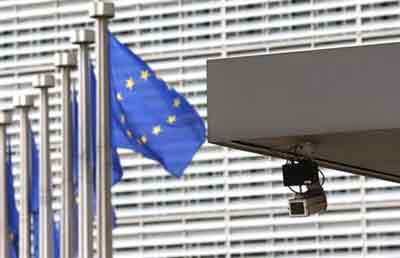
EU threatens to suspend data-sharing with US
Brussels, July 6, 2013
The European Union has threatened to suspend two agreements granting the US access to European financial and travel data unless Washington shows it is respecting EU rules on data privacy.
The threat reflects European disquiet about allegations that the United States has engaged in widespread eavesdropping on European Internet users as well as spying on the EU, said senior officials said on Friday.
Cecilia Malmstrom, the EU's home affairs commissioner, wrote to two senior US officials to voice European concerns over implementation of the two agreements, both struck in the wake of Sept 11 attacks and regarded by Washington as important tools in the fight against terrorism.
"Should we fail to demonstrate the benefits of (the agreements) for our citizens and the fact that they have been implemented in full compliance with the law, their credibility will be seriously affected and in such a case I will be obliged to reconsider (whether) the conditions for their implementation are still met," Malmstrom said.
EU-US relations are going through a "delicate moment", she wrote in the letter to US Homeland Security Secretary Janet Napolitano and David Cohen, Treasury under-secretary for terrorism and financial intelligence.
"Mutual trust and confidence have been seriously eroded and I expect the US to do all that it can to restore them," she said in the letter, seen by Reuters.
Malmstrom is sending a team of officials to Washington next week for previously scheduled reviews of both information-sharing agreements.
The Terrorist Finance Tracking Programme (TFTP) provides the US Treasury with data stored in Europe on international financial transfers. The Passenger Name Record agreement covers data provided by passengers when booking tickets and checking in for flights. All such information is passed to the US Department of Homeland Security.
US intelligence sources say aggressive spying operations by some allies, notably France, rival those of the US National Security Agency. China, Iran and Israel also engage in such activities, whereas Japan and Germany are more restrained in spying, according to former US national security and law enforcement officials.
The United States and the EU need to show that the two data-sharing agreements "continue to bring benefits to our security and that the robust safeguards attached to them are respected to the full. We need complete transparency and a maximum of information on both programs," Malmstrom wrote.
The European Parliament, some of whose members have long worried that the agreements granted the United States too much access to European data, called on Thursday for the scrapping of both accords unless Washington revealed the extent of its electronic spying operations in Europe.
Many of the eavesdropping reports were based on leaks by fugitive Edward Snowden, a former contractor for the NSA.
Current and former US officials familiar with France's programs say it and other European countries conduct wide-ranging surveillance against both friendly countries and adversaries, and have done so for economic as well as political and strategic reasons.
US security sources also say that intelligence operations in France and other nations work with fewer restraints than the NSA, which is governed by a framework of laws and internal and legislative oversight.
A 2009 cable posted by WikiLeaks from the American Embassy in Berlin to Washington highlighted concerns about French espionage among high-tech businesses. "France is the evil empire stealing technology and Germany knows this", the cable quoted a European high-tech executive saying.-Reuters







